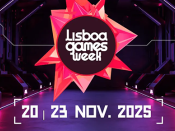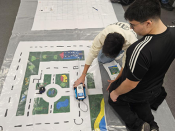Por Luccas Campos (Universidade Federal de Minas Gerais).
The concentration-compactness-rigidity method, pioneered by Kenig and Merle, has become standard in the study of global well-posedness and scattering in the context of dispersive and wave equations. Albeit powerful, it requires building some heavy machinery in order to obtain the desired space-time bounds. In this talk, we present a simpler method, based on Tao's scattering criterion and on Dodson-Murphy's Virial/Morawetz inequalities, first proved for the 3d cubic nonlinear Schrödinger (NLS) equation.
Tao's criterion is, in some sense, universal, and it is expected to work in similar ways for dispersive problems. On the other hand, the Virial/Morawetz inequalities need to be established individually for each equation, as they rely on monotonicity formulae. To treat the non-radial case, the original Dodson-Murphy's approach for the NLS equation relies heavily on the conservation of momentum and on the Galilean invariance. This poses an obstacle for equations which do not present these features. We show how to circumvent this problem in the case of the inhomogeneous NLS, by exploiting the decay of the nonlinearity, making it possible to drop the radiality assumption. The approach is versatile, as it can be shown to work in the energy-subcritical setting for different spatially decaying nonlinearities, as well as for higher-order equations.
Transmissão via Zoom.
The Lisbon Webinar in Analysis in Differential Equations is a joint iniciative of CAMGSD, CMAFcIO and GFM, three research centers of the University of Lisbon. It is aimed at filling the absence of face-to-face seminars and wishes to be a meeting point of mathematicians working in the field.




















